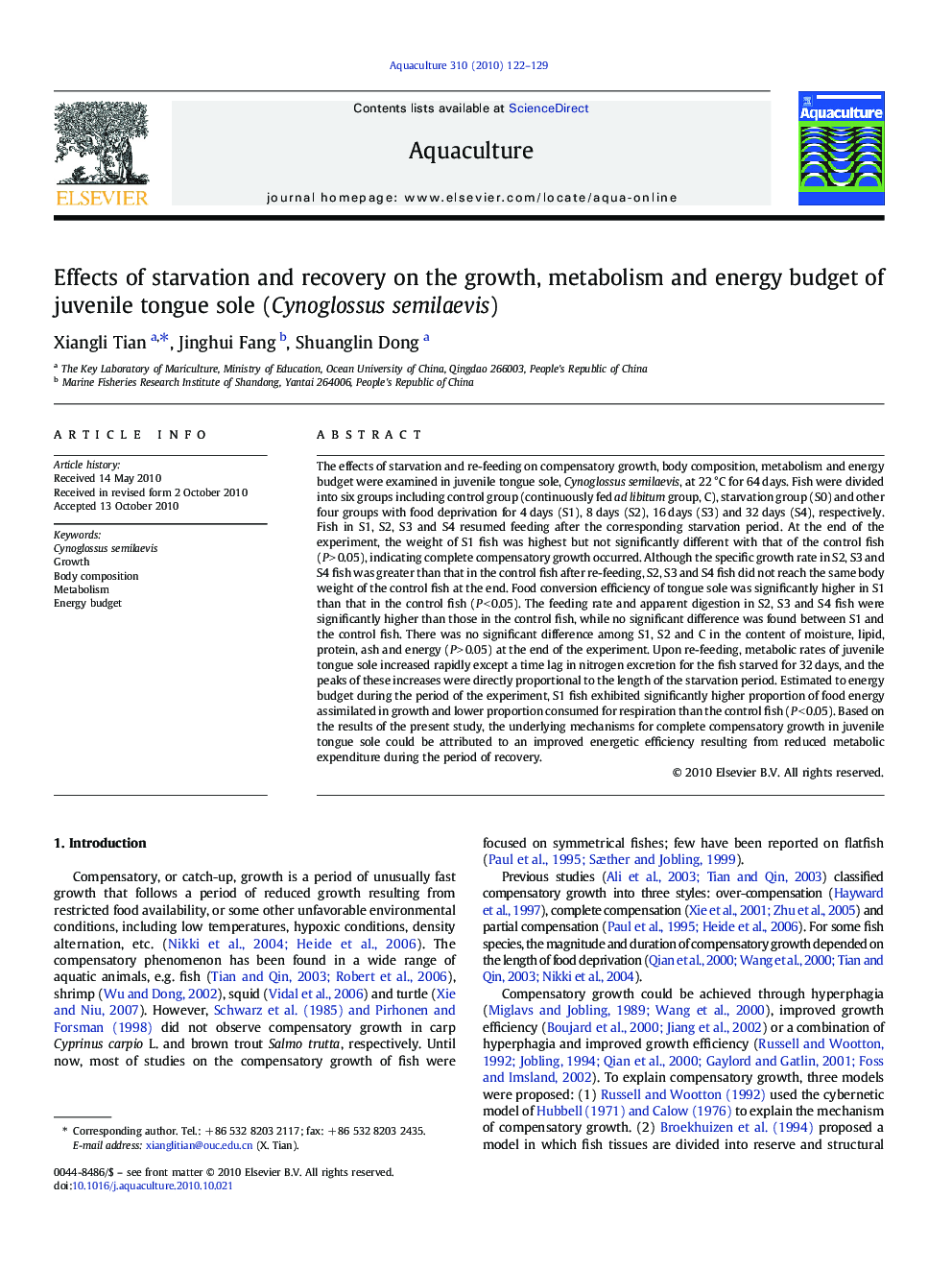| کد مقاله | کد نشریه | سال انتشار | مقاله انگلیسی | نسخه تمام متن |
|---|---|---|---|---|
| 2423424 | 1552916 | 2010 | 8 صفحه PDF | دانلود رایگان |

The effects of starvation and re-feeding on compensatory growth, body composition, metabolism and energy budget were examined in juvenile tongue sole, Cynoglossus semilaevis, at 22 °C for 64 days. Fish were divided into six groups including control group (continuously fed ad libitum group, C), starvation group (S0) and other four groups with food deprivation for 4 days (S1), 8 days (S2), 16 days (S3) and 32 days (S4), respectively. Fish in S1, S2, S3 and S4 resumed feeding after the corresponding starvation period. At the end of the experiment, the weight of S1 fish was highest but not significantly different with that of the control fish (P > 0.05), indicating complete compensatory growth occurred. Although the specific growth rate in S2, S3 and S4 fish was greater than that in the control fish after re-feeding, S2, S3 and S4 fish did not reach the same body weight of the control fish at the end. Food conversion efficiency of tongue sole was significantly higher in S1 than that in the control fish (P < 0.05). The feeding rate and apparent digestion in S2, S3 and S4 fish were significantly higher than those in the control fish, while no significant difference was found between S1 and the control fish. There was no significant difference among S1, S2 and C in the content of moisture, lipid, protein, ash and energy (P > 0.05) at the end of the experiment. Upon re-feeding, metabolic rates of juvenile tongue sole increased rapidly except a time lag in nitrogen excretion for the fish starved for 32 days, and the peaks of these increases were directly proportional to the length of the starvation period. Estimated to energy budget during the period of the experiment, S1 fish exhibited significantly higher proportion of food energy assimilated in growth and lower proportion consumed for respiration than the control fish (P < 0.05). Based on the results of the present study, the underlying mechanisms for complete compensatory growth in juvenile tongue sole could be attributed to an improved energetic efficiency resulting from reduced metabolic expenditure during the period of recovery.
Journal: Aquaculture - Volume 310, Issues 1–2, 22 December 2010, Pages 122–129